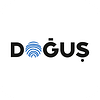Bu Data Science with SQL Server and R Azerbaycan Eğitimi; R dili, istatistik, veri madenciliği ve makine öğrenmesi kavramlarını tanıtarak, SQL Server ve Microsoft BI (İş Zekası) araçları ile veri bilimi uygulamalarını öğretir.
R, istatistiksel analiz, veri madenciliği ve makine öğrenmesi için en popüler programlama dili ve ortamdır. SQL Server, Power BI ve Azure ML içerisinde çalışan yönetilen ve ölçeklenebilir bir sürümü vardır.
Ana odak R dili olsa da, eğitimde ayrıca MS BI araçlarıyla veri bilimi uygulamaları için kullanılan Python, T-SQL, Power BI, Azure ML ve Excel gibi teknolojiler de gösterilir.
Laboratuvar uygulamaları R odaklıdır; demolar ise diğer dillerle yapılır.
Neden Bu Eğitim?
R ve Python karşılaştırması
Gözetimsiz öğrenme (unsupervised learning) yöntemlerine giriş
Matris işlemleri
Değişkenler arası ilişkileri görselleştirme
Analitik görevler için veri hazırlama
Gözetimli öğrenme yöntemlerine giriş
























